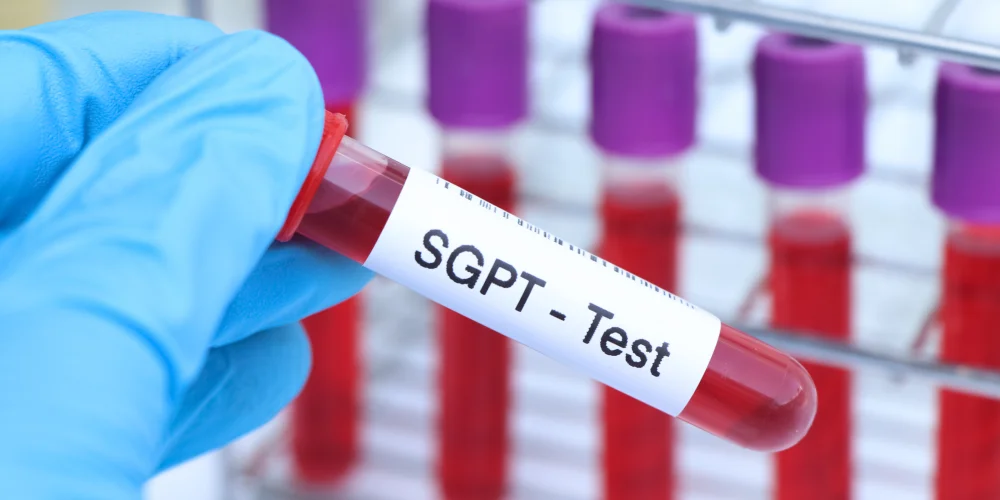Serum Glutamic Pyruvic Transaminase
Assessment of Liver Function and Health
The SGPT (Serum Glutamic Pyruvic TRANSaminase) test is often known as the variant of ALT (Alanine Aminotransferase) It is a test that can be used to determine the function of the liver through testing the levels of SGPT enzymes present in blood. SGPT is primarily found in the liver’s cells and released into bloodstreams during the situation that the liver been damaged or inflamed. Monitoring SGPT levels is a way to detect problems with the liver and also determine the degree of damage that has occurred caused to liver.

When is the SGPT Test Prescribed?
It is the SGPT test, also referred to as Serum Glutamic-Pyruvic transaminase test is extremely important in the clinical setting to serve multiple functions. In the first place, it is an instrument for diagnosing liver conditions including cirrhosis, liver hepatitis as well as fatty liver disease by analyzing ALT levels. Healthcare professionals can to provide timely treatment and track the progression of disease effectively.
Furthermore the SGPT test has a significant job in monitoring the liver’s function for patients who have liver diseases, as it provides ongoing tests to modify the treatment plan as necessary. Additionally, it is used to evaluate the effect of toxins or medications on liver health and ensuring that patients are safe during therapies. In addition, as part of regular health checks and health screenings, the SGPT test can be instrumental for assessing general liver health, and allowing the early identification of any liver issues even for patients who are not symptomatic. The comprehensive application for the SGPT test helps to ensure the proactive care of the health of the liver and improves the standard of care for patients in a variety of medical settings.
Preparation for the S.G.P.T Test
An adequate amount of preparation is required to be able to pass test S.G.P.T test. Subjects to the test can take in a steady diet of food and beverages before the exam. It’s essential to inform your physician of any medications, supplements or illness you’ve suffered recently that may impact the testing results.
Parameters Considered During S.G.P.T Test
The S.G.P.T test measures the amount of ALT in the blood. An increase in ALT levels may indicate liver damage or disease that require further research and therapy.
Time Required for S.G.P.T Test Report
Results of tests for the S.G.P.T test are typically by the following day. This speed permits medical professionals to evaluate the liver’s function quickly and recommend the appropriate treatment plan or conduct additional tests in the event of a need to diagnose.
S.G.P.T Test Price
The test is offered at Chirayu SuperSpeciality Hospital, the S.G.P.T test is priced at 220 dollars. This low-cost option gives you the vital information needed to make a diagnosis to assess the condition of your liver.
Book an Appointment for S.G.P.T Test
The process of scheduling an appointment to sit for an S.G.P.T test is simple. It is possible to schedule the test on our web portal, or contact our support team for assistance.
What Our Patients Say
Hear from our valued patients about their experiences at Chirayu Super Speciality Hospital and how our care has made a positive impact on their health and well-being.
No testimonials found.
Frequently Asked Questions
Here, we provide answers to some of the most commonly asked questions to help you better understand our services, policies, and facilities. If you have any additional questions, please do not hesitate to contact us.
Elevated S.G.P.T levels may suggest liver damage or disease, such as hepatitis or fatty liver.
Yes, certain medications and supplements can influence S.G.P.T levels. It’s essential to inform your healthcare provider about all medications you are taking.
No, fasting is generally not required for this test unless specified by your healthcare provider.
The frequency of testing depends on your health condition and your healthcare provider’s recommendations.
Abnormal levels may indicate underlying liver issues. Further evaluation and treatment may be necessary based on your test results.